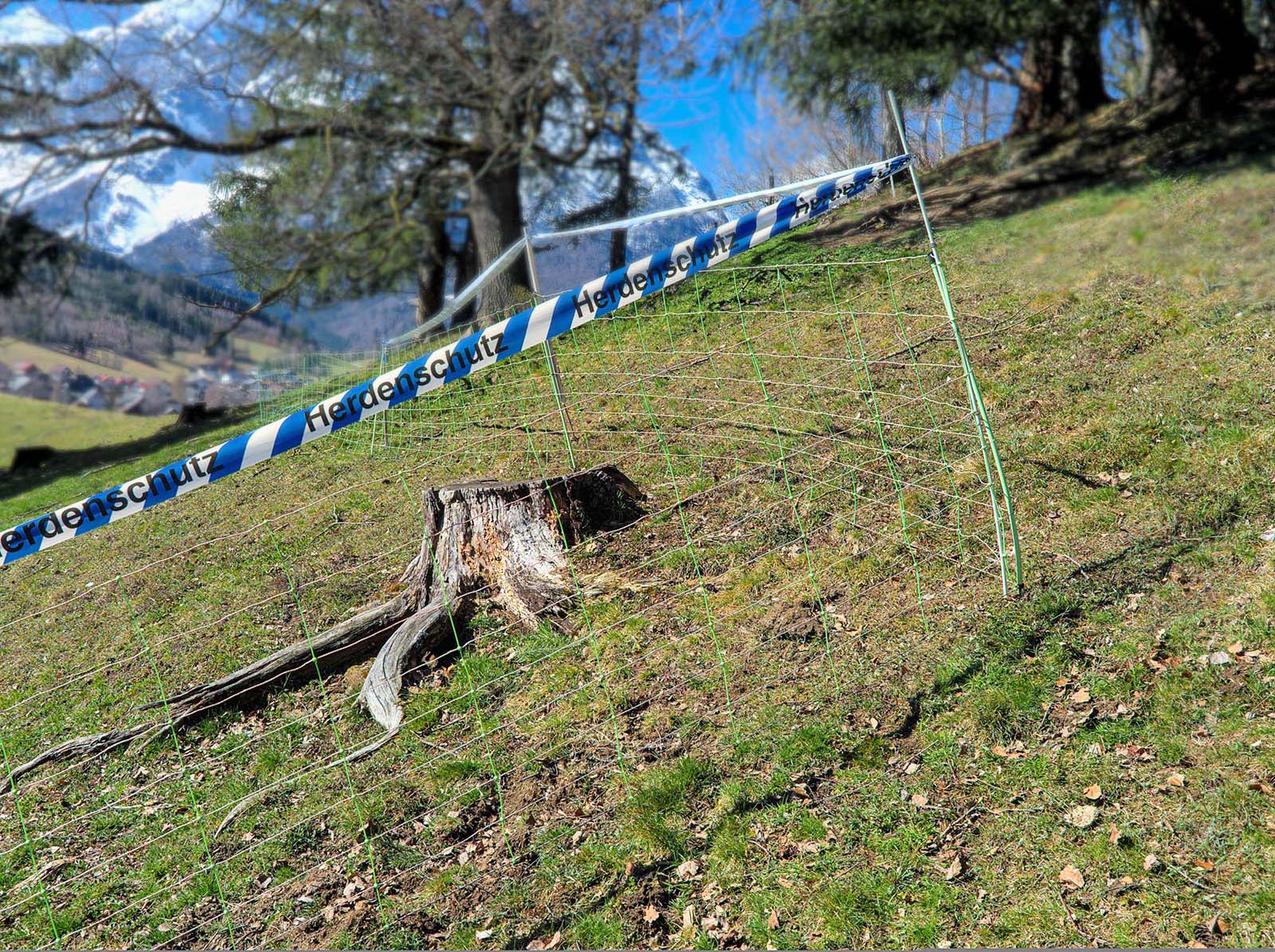There has been an increasing number of detections of wolves in Austria for several years now. So far, most wolves have been migrants and have only had short stays in our country, with isolated, isolated attacks on grazing animals. Unfortunately, it is impossible to predict or calculate where the next wolf will pass through and attack our farm animals. If you look at the attacks in recent years, they often took place in the valleys along routes from south to north or vice versa.
The start of grazing takes place on the home areas, where the grazing animals are fenced in. In the future, a fence will no longer be measured by its security, but rather by whether it can prevent large predators from breaking in. Nowadays, many farmers use electrified fences anyway, and these also offer the best protection from large predators. With little effort, these fences can provide a minimum level of herd protection. With electric networks, attention must be paid to the ground connection, with stranded fences to the distance from the ground of the first strand. It is important to have adequate power supply at all times; not only our grazing animals have to learn “the fence hurts”, but also the wolf. If the wolf only finds protected grazing animals, it will move on and look for food in the wild.
Note: Webinar from the Styrian Nature Conservation Academy on Wednesday, March 17, 2021
on the topic of pasture culture & shepherd tradition and their effects







